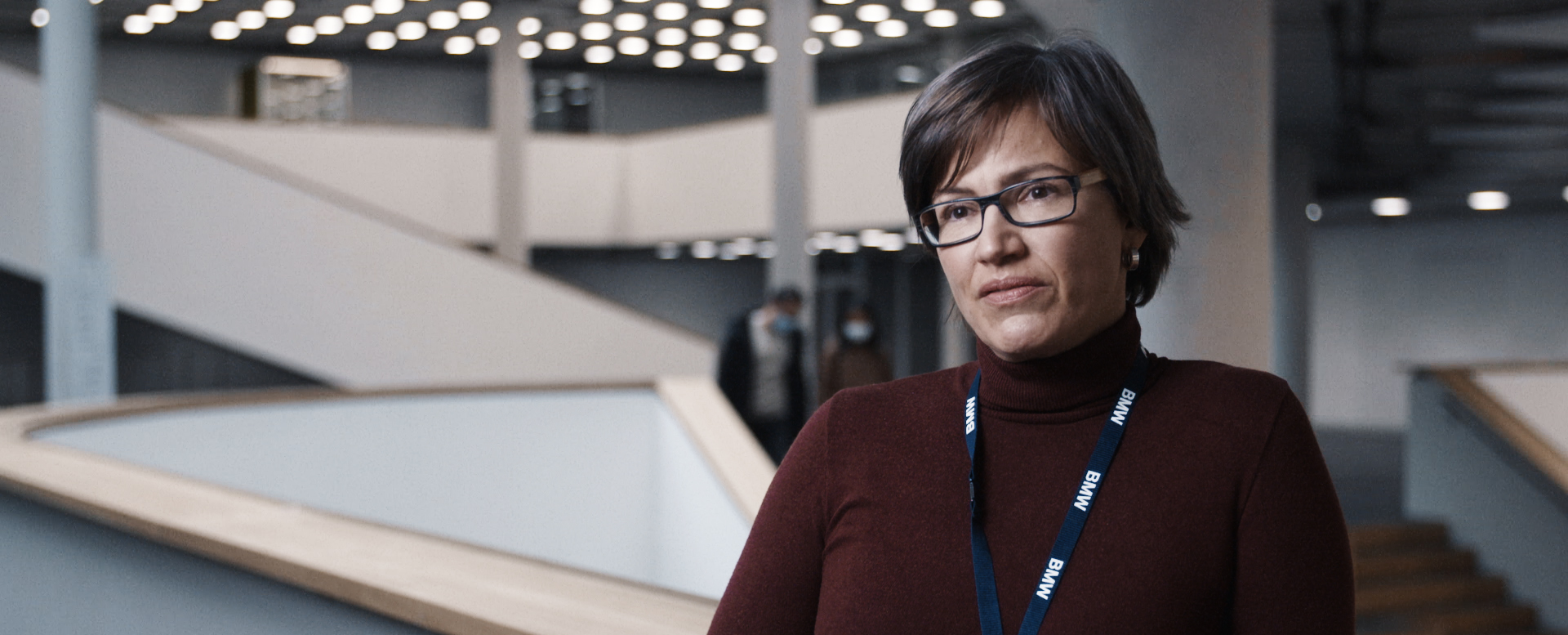What is your job about? What area are you working in?
Our tasks are divided into two main areas: Firstly, into the environmental and social standards in the supply chain, and secondly into the CO2 reduction in the supply chain, and the environmental and social standards. In doing so, we are particularly aiming to reduce the risks for the BMW Group. Above all, these are risks that arise from potential human rights abuses in the supply chain and risks arising from critical raw materials.
When it comes to CO2 emissions, the main target is to achieve a climate-neutral supply chain by 2030. It is about bringing this claim in line with the suppliers and ask them to contribute. Our supply chain consists of the suppliers and their added value contributions and without these added value contributions, we will not be able to realise these reductions.
How is sustainability linked with your role?
In my job, the whole day is about sustainability in its various functions, but always with regards to the BMW Group's supplier network. In other words, the entire breadth of the topic: from the use of resources to potential impairments or risks for the surrounding nature or the social aspects of sustainability. All of this is reflected in our risk filters, in our reduction targets, measures and assessments that we carry out in audits. The aim is to do justice to the unbelievable dimensions of this topic in such a way that it is implemented with limited resources for this large supplier network without neglecting the important points. This is actually the main requirement, but it is always and at all points about sustainability.
In what regard do you and your work contribute to the sustainability targets of the BMW Group?
The goals of our department are directly linked to the sustainability goals of the BMW Group. We have a target system at corporate level from which the targets for the purchasing department are derived. One example is the CO2 reduction which is mapped in the supply chain under the corporate goal of “Resource Efficiency”. In this context, we have developed key performance indicators over the years to make the CO2 reduction in the supply chain tangible. Our KPIs are tracked annually, published in the sustainability report and they go straight into the corporate target system "Resource Efficiency".
How does it make you feel to be part of this transformation?
It is very exciting to be part of this transformation. This is something that is difficult to imagine if you are not in the middle of it. It is very exciting how much influence you can actually have as a representative of such a large company like the BMW Group.
Where do you see your topic go in the future?
I probably see my topic exactly where everyone sees their topic in the future, namely with a rapidly increasing importance. But I can hardly solve that by myself. It is a social movement that I hope we can all follow.
Are you proud to be involved in this topic?
I am actually very proud to be able to work here. Especially as it is something I have personally followed for years. And to finally be able to do that professionally is very exciting.
What does sustainability mean to you?
On a personal level, I probably have a somewhat radical idea of sustainability, perhaps too radical for the professional context. I believe that sustainability is a prerequisite that must be met in order to give us a right to exist as a society on earth in the future.
How relevant do you see sustainability?
For me personally, sustainability is a very important concern and therefore I am very grateful that I can actually work on it professionally; that I can harmonise this personal claim and my professional work so closely. Often the demands that you have personally are higher or faster than what you can implement professionally. On the other hand, such a large employer also offers the opportunity to advance things on a scale where you have a significantly greater impact overall, than you could personally have. I always describe it as an integral function – the sum of what is moved is simply larger, even if the steps are smaller.
How does this impact you personally?
At work, it is not always possible to entirely match the personal demands with the ones of a company. You also have to take into account that a company has certain framework conditions in which it exists. In other words, you cannot produce one hundred percent coverage here. But you can try to live up to this claim as much as possible. I have a 19-year-old daughter who often rolls her eyes because she says I am more Fridays for Future than her generation.
What is your idea of a sustainable world?
My idea of a sustainable world looks like this: significantly less consumption, significantly more conscious consumption, significantly more quality, significantly more longevity, repair, more cooperative work, and less throwaway society.
Have you always been paying attention to sustainability?
In fact, sustainability has not always been an issue for me. But I can date it fairly accurately. When I was about 16 years old, the Brundtland Report was published. This was a very decisive experience for me as it made me understand the inevitability in which we have to approach the topic and how our business and actions have to fit into the boundaries the earth represents. From then on, I dealt with this topic but also had to wait a few years at BMW until a position became available in which I could work.
